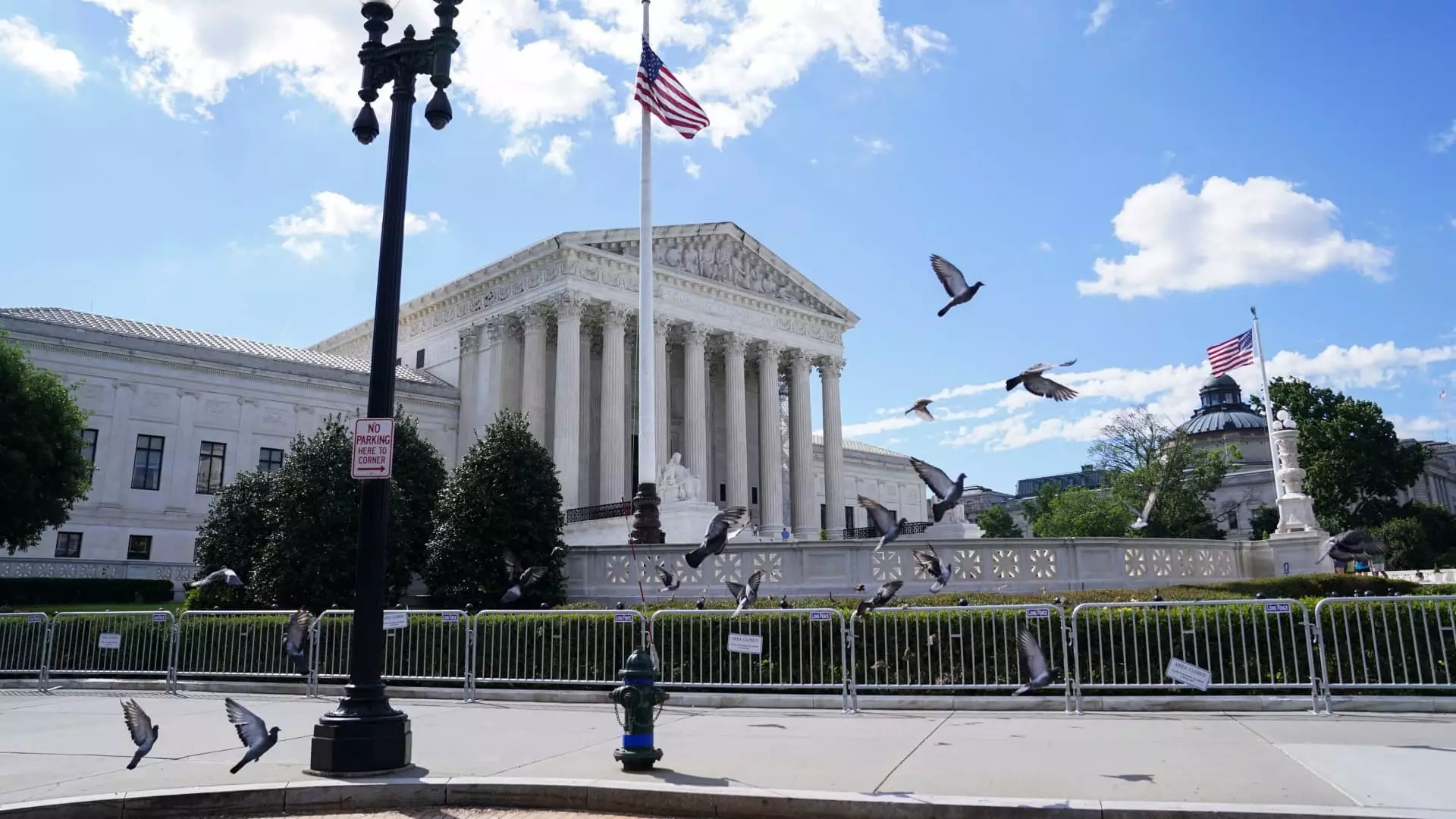Republican lawmakers and the U.S. Chamber of Commerce were quick to praise the Supreme Court’s decision to overturn the long-standing Chevron doctrine. For decades, the doctrine had given federal agencies the power to interpret laws when their language was unclear, leading to unelected government officials gaining more authority. Senate Minority Leader Mitch McConnell emphasized that the Constitution grants Congress the sole authority to make laws, praising the Supreme Court for putting an end to the bureaucratic overreach facilitated by the Chevron doctrine. This move was seen as a significant victory for those who believe in limiting the power of government agencies.
The Chamber of Commerce also expressed its approval of the Supreme Court’s decision, acknowledging it as a necessary correction to create a more stable regulatory environment. CEO Suzanne Clark highlighted the detrimental impact of the prior Chevron rule, which allowed successive administrations to implement regulations that aligned with their political agendas. The lack of consistency in regulations was deemed problematic for businesses planning and investing in the future. The Chamber of Commerce’s endorsement of the ruling indicated a shift towards more predictable regulations that would benefit the business community.
Legal experts, including Jeff Holmstead, predicted that the Supreme Court’s ruling would significantly alter how agencies formulate regulations. Holmstead emphasized that agencies would no longer be able to start with a predetermined regulatory program and manipulate existing laws to justify their actions. Instead, they would be required to adhere to the statutory language and uphold Congress’s intentions. This change in approach was expected to bring greater accountability and transparency to the regulatory process, curbing the discretion previously exercised by federal agencies.
In contrast to the Republican celebration, Democrats criticized the Supreme Court’s decision, accusing the conservative majority of expanding their authority. Senate Majority Leader Chuck Schumer denounced the ruling as favoring powerful special interests and corporations at the expense of the middle class and American families. The overturning of the Chevron doctrine was viewed as a radical departure from established precedent, with Democrats expressing concerns about the implications for regulatory oversight and government accountability.
Senator Tom Cotton hailed the Supreme Court’s ruling as a victory for constitutional government and the rule of law, characterizing it as a blow to the bureaucratic establishment in Washington, D.C. By invalidating the Chevron doctrine, the court signaled a reevaluation of the balance of power between federal agencies and Congress, underscoring the importance of elected officials in overseeing regulatory decision-making. The ruling not only marked a significant shift in the legal landscape but also set the stage for a more deliberative and transparent regulatory framework moving forward.
The Supreme Court’s decision to overturn the Chevron doctrine has far-reaching implications for the regulatory practices of federal agencies. While Republicans welcomed the ruling as a necessary check on bureaucratic power, Democrats raised concerns about the erosion of established precedent and the potential impact on governance. As the legal and policy implications of this decision continue to unfold, it is clear that the relationship between federal agencies and legislative oversight will be subject to greater scrutiny and accountability.

Leave a Reply